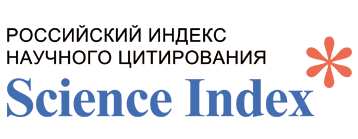FORMATION OF NATIONAL VALUE ORIENTATIONS OF STUDENTS IN THE AXIOLINGUISTIC ASPECT
DOI:
https://doi.org/10.59102/kufil/2023/iss2pp112-124Аннотация
Turning of linguistics to the anthropogenic paradigm in recent decades has led to a spread of interdisciplinary humanitarian studies based on «Man-World-Language», «Man-language- Cognition», and «Man-Language-Culture» and «Man-Language-Value» triads. A new scientific paradigm aimed at describing the manifestation of worldview concepts in language, as the most important achievements of human civilization, has contributed to the formation of complex branches of linguistics. The anthropocentric principle of mastering national values has been widely implemented in teaching axiolinguistics to students. Considering the issues of axiolinguistics at higher education institutions is a priority in identifying and explaining the peculiarities of the linguistic image of the world and the national mentality that forms national worldview, national values of an individual, and the necessary degree of communicative activity by explaining the processes of intercultural communication and historical relationship between language and ethnos.
To introduce successfully national values into the content of the course of axiolinguistics at universities, it is necessary to consider axiological concepts as a whole semantic system and to study the complex of the entire language (words, phrases, phraseological units, proverbs, names of mythical concepts, texts). As a result, a student will develop the skills to treat national culture and language as a part of human culture, to evaluate the real life around them in terms of national values.
Ключевые слова:
axiolinguistics, national values, association questionnaire, key concepts, value perspectiveБиблиографические ссылки
Explanatory Dictionary of the Kazakh language, 2008: 542
Dictionary of linguistic terms, 2012:11
State Compulsory Educational Standard of Higher Education of the Republic of Kazakhstan, 13.05.2016, №292:8
Kazakhstan's Way – 2050: One Goal, One Interest, One Future, 2014, 17 January, Akorda
Peskov V.M. Polnoe sobranie sochinenii v 23 t. [Complete works in 23 volume]. – Moscow: Komsomolskaya Pravda, 2014.
Kupina N.A., Vepreva I.T. Verbal’nye znaki bazovyh tsennostei: k оsnovaniyam lingvistitseskoi sistematizatsii //Natsional’nye tsennosti v yazyke I kommunikatsii. [Verbal signs of basic values: to the foundations of linguistic systematization // National values in language and communication]. Abstracts of the Scientific Seminar with International Participation / Edited by Mikhailova Yu.N. Ekaterinburg, 2015. -14 p.
Radbil T.B. Оsnovy izucheniya yazykovogo mentaliteta. [The basics of studying the language mentality]. – Moscow, Flint: Science, 2010. – 328 p.
Amirbekova A.B. Коntseptilik kurylymdardyn poetikalyk matindegi verbaldanu ereksheligi. [Features of verbalization of conceptual structures in the poetic text]. Dissertation of Candidate of Philological Sciences. – Алматы, 2006. – 107p
Kurmanbaeva Sh.K. Urpak tarbiesi – ult bolashagy// «Kazirgi zamangy kogam damuy ayasynda zhastarga ruhani-аdаmgershilik tarbie beru». [Generational upbringing – the future of the nation // «Spiritual and moral education of youth in the context of the development of modern society»]. Materials of the scientific-practical conference, 2017, –131-135 p.
Маrkelova Т.V. Semantika otsenki I sredstva ee vyrajeniya v russkom yazyke [Semantics of evaluation and means of its expression in Russian]: Dissertation of doctor of Philological Sciences. – Moscow,1996. – 511 p.
Brandes М.R. Stilisticheskii analiz: Nа material nemetskogo yazyka. [Stylistic Analysis: Based on the German Language] – Moscow: Librocom, 2009. – 208 p.
Babayeva Е.V. lingvokul’turologicheskaya harakteristiki russkoi I neetskoi aksiologicheskih kartin mira [Linguocultural characteristics of the Russian and German axiological pictures of the world]: Dissertation of doctor of Philological Sciences. – Volgograd, 2004. – 438 p.
Warlim, EncepSyariefNurdin&Supriyono. (2021). “Character Development Based on National Values for Basic School Teachers” in EDUCARE: International Journal for Educational Studies, Volume 13(2), February, pp.165-180. Bandung, Indonesia: MindaMasagi Press owned by ASPENSI with ISSN 1979-7877 (print) and ISSN 2621-587X (online).
Rubinstein, M., Rubinstein, S. 1976. “Man and the world” Problems of general psychology. Moscow: Psychology: P. 253-381.
Şimşek, R. (2021). Socio-Political Evaluation of The Distribution Of Root Values In Turkish Language Textbooks, International Journal of Eurasian Education and Culture, 6(12), 566-612.DOI: http://dx.doi.org/10.35826/ijoecc.343
Опубликован
Как цитировать
Выпуск
Раздел
Лицензия
Copyright (c) 2023 Bulletin of Shokan Ualikhanov Kokshetau University Philological Series

Это произведение доступно по лицензии Creative Commons «Attribution-NonCommercial» («Атрибуция — Некоммерческое использование») 4.0 Всемирная.











